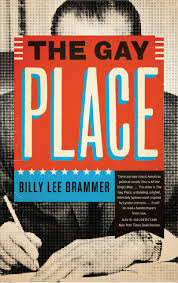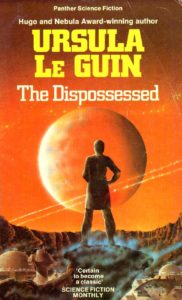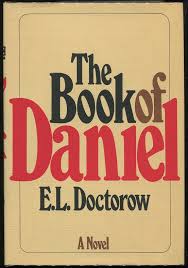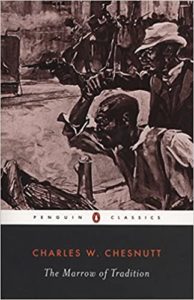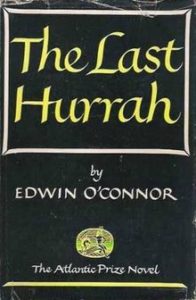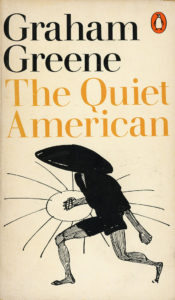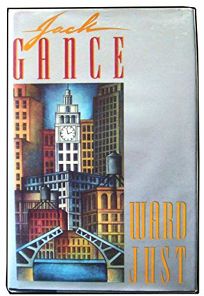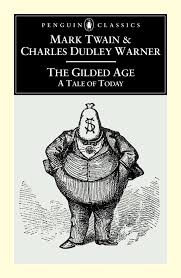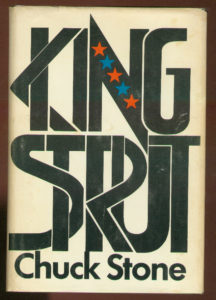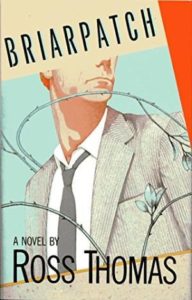When I was a UConn student in the early 1970s, I had an English professor named Donald Gibson, a kind, soft-spoken gentleman who by that time had become one of the nation’s most respected authorities on what was categorized in those days as “Afro-American literature.” When teaching courses on all of American literature, including one I took that covered the 19th century of Hawthorne, Melville, Dickinson, Twain, and Douglass, Professor Gibson wanted it known from the beginning that he considered all novels, and therefore all literature, to be political in nature, even, and maybe especially, when such writing went out of its way to avoid taking any kind of explicit political stance. This to me seemed on the one hand understandable since Gibson had made his reputation with books by Black writers that were always viewed by critics in and out of academia as being primarily political in nature at the expense of all other aesthetic considerations. So I figured that he’d countered their assertions by saying, well, if that’s true, then the same can be said for the rest of the literary canon, in America and elsewhere. On the other hand, I also wondered whether his perspective as applied to all literature turned out to be as aesthetically reductive as however white critics were analyzing Black American literature.
I have in the intervening years outgrown my reservations. Don Gibson was right. Novels are all political in some form or another, whether written by Tolstoy or John D. MacDonald, with all kinds of things in between: The Charterhouse of Parma and The Grapes of Wrath; The Godfather and Gulliver’s Travels ; The Plague and The Plot Against America; Candide and Babbitt ; The Handmaid’s Tale and The Autumn of the Patriarch;A Tale of Two Cities and The Unbearable Lightness of Being; the Martian trilogy of Kim Stanley Robinson, the Albany cycle of William Kennedy and almost all the spy novels of John le Carré especially the ones that came out after Karla turned himself over to The Circus….
Whatever’s left of the reading public might think it’s too constricting to bring political angles to works of imagination, especially when (just guessing) the political angles clash overmuch with their own perspectives. They also believe that imposing politics upon a literary work ensures its loss of posterity. Tell it to 1984, which has retained its currency for almost forty years after the real 1984 receded in History’s rear-view mirror. You wish some things could be made obsolete. But mass mind-fucking and state-enabled terror may never go out of style and George Orwell’s somehow always around to remind us of this dismal fact.
In fact, that may, oddly, be one of the assets of political fiction: to remind us of what we’ve always had to deal with as human beings struggling to make livable spaces for ourselves; you, know, what we tend to call , “societies,” or maybe just leave it at “Society.” And that, however much we try to make things better for humanity and however little we manage to push the needle ahead every once in a while, we’re always left with our messed-up selves and our perennially broken hearts. If love doesn’t break them for us, politics invariably will.
That, for me anyway, is what has always made up the romance of political fiction, which, as Faulkner said of all literature that matters, is about the human heart in conflict with itself. The indifference-bordering-on-contempt that most people hold for politics can be tied directly to how it breaks so many hearts to the point that those people can’t or won’t care about politics anymore.
It’s OK to be mad at politics, even bitter. But if the last decade, and maybe the couple before that have proven anything, it’s that you retain indifference to politics at your peril – and, in the longer run, democracy’s peril as well.
I am in no way saying that any or all of the ten books I’m listing below will save the Republic or preserve democratic values. (Books alone can’t do that; readers can or are supposed to.) But these are all political novels, or novels with politics in them (and yes, there is a difference, but one not worth parsing here) that have shaped my own perspective on politics’ interplay with imagination – and, most of all, how that interplay magnifies possibilities in both. You’re probably going to notice omissions: All the King’s Men (still moving in parts, terribly dated in both its overripe rhetoric and grandiloquent tactics) or Advise and Consent (enthralled with it when younger, doubt I will ever read it again, especially given its author’s frothing-at-the-mouth follow-ups). We’d be here all night going over all the others, some of which I cited earlier, as well as those I haven’t gotten around to yet, from Trollope’s Palliser novels to Henry Adams’ Democracy to James Fenimore Cooper’s The Bravo (me neither, until I heard about it a month ago from a fellow voracious reader). So much to look forward to.
Anyway…in no particular order (other titles in bold within each entry are recommended, but not as urgently):
The Gay Place — I got to admit that my recent re-reading of Billy Lee Brammer’s 1961 trilogy of interlocking novellas about arm-twisting in both love and politics has been primarily an exercise in wish-fulfillment. Not only do most of the characters in circa 1950s Austin, Texas seem to be having so much more fun back then than me or anybody I know in this age of pandemic, but one also yearns for somebody in public life who can fall back and fire away with something that goes like this:
“I tell you, boy, there aint ‘nothin’ else but power an’ change an’ improvement. The rest…is all a mere middle-class business. Aint no use fomentin’; Learned that long ago. Aint no use ‘cept in the last extremity. You want to overturn the existin’ institution, that’s fine. But you got to be sure you know how to build a better one. The thing to do is to work through the institution…figure a way to do that…to make change and build a city and save the goddam world from collapse.”
That there is Arthur “Goddam” Fenstermaker, the Brobdingnagian governor of Texas and the heady glue that holds Brammer’s novellas together. Fenstermaker is a thinly disguised version of Lyndon B. Johnson, for whom Brammer served as an aide in Washington when LBJ was the most effective, significant and unapologetically Machiavellian senate majority leader before Mitch McConnell. Described by one character as “a combination of Mahatma Gandhi and Rasputin . . . The Prince of Darkness and the Goddamn Mystic Angel,” the bluff, profane and cunningly manipulative Fenstermaker provides both direction and meaning to the lives of three wayward, wooly young men: an epicurean state assemblyman, a diffident U.S. senator (“very junior”) and the governor’s circumspect press aide. All are pressed hard by the centrifugal force of Fenstermaker’s wheeling and dealing to do better for themselves and for their families and constituencies. Never mind the often-distasteful things you have to do to get what or where you want. As the governor insists, it’s always about “power,” “change” and (you hope) “improvement.” What else is a democratic goddam republic for anyway?
The Dispossessed (An Ambiguous Utopia) — Along with The Left Hand of Darkness, this 1975 multiple-award-winning science fiction novel is considered one of the high points of Ursula K. LeGuin’s “Hainish Cycle” about interplanetary civilizations. This one makes you think hard and deep about that thing Governor “Goddam” mentions above about wanting to change “an existin’ institution” while needing to know how to build a better one. The protagonist is Shevek, a physicist born and raised on Annares, an anarchist-collectivist settlement on a near-uninhabitable desert world where wealth and responsibility are shared by the inhabitants. It’s all worked well for over an Earth-like century. But there are signs of both stagnation and fraying in the social structure; there are even “propertarians” challenging the consensus of selflessness. Shevek travels from Annares to its “mother planet” of Urras (enough with the giggling!), which embodies everything the Annares colonists were escaping from: rampant individualism, unchecked capitalism, brutally enforced social stratification and gross disparities in both resources and opportunities for rich and poor. On the other hand, there’s enough intellectual freedom on Urras for Shevek’s “theory of simultaneity” that the folks back home in Annares view with suspicion because it could ruin their proud isolation from other, less egalitarian societies. It’s an ingenious, elaborately wrought novel of ideas that keeps your brain lit up without shortchanging suspense and romance. And the social and political dualities it grapples with have managed to ooze from the 20th century into the 21st with plenty of room for arguing one or more sides. What might a Fenstermaker conclude after reading it? That whatever else Utopia is, it aint paradise, it aint perfect, and it damn sure aint easy.
The Book of Daniel — As much as any conventional nonfiction narrative on the era you can name, E.L. Doctorow’s 1971 tour de force — which, as I now have the floor, I will declare his best novel – manages to encompass the whole history of the American Left in the early-to-mid-20th century as reimagined through the riffing, riotously discursive and profoundly haunted “doctoral thesis” submitted for our consideration by Daniel Levin nee Issacson, whose parents were executed in the fifties for allegedly selling atomic secrets to the Soviet Union. Doctorow’s boldness in mining fictional possibilities from the real-life saga of Julius and Ethel Rosenberg is enhanced by the detailed intimacy with which he evokes Daniel’s memories of the traumatic childhood he shared with his sister Susan. The book is like a hipster’s revision on John Dos Passos’ rip-roaring pastiches, only with language that is at once more introspective and musically vibrant. The overall trajectory of Doctorow’s narrative is like that of Ralph Ellison’s metaphorical boomerang: always coming back, but never in identical arcs. As it is so, Ellison maintained, with history – and, I would add, with politics, too.
The Marrow of Tradition — In November 1898, a mob of about 2,000 white supremacists assembled in Wilmington, North Carolina to carry out a violent insurrection against its more than 10,000 Black citizens as well as the homes and businesses they owned in the city. The duly elected Republican government, which supported the Black community, was ousted from power and between 60 and 300 people were killed. Events were (of course) widely misrepresented in public accounts of the time as a Black riot put down by vigilante justice. But just two years later, Charles W. Chesnutt , perhaps the nation’s most prominent Black novelist at the turn of 20th century, published this fictional depiction of what would much later be acknowledged as the only overthrow of an elected government in American history. If you can look past some of the anachronistic rhetorical flourishes, you’ll see how much nuance and sophistication Chesnutt shows in detailing the complicated racial heritage secretly joining together two families living in what he’s here calling Wellington. There is the white family whose patriarch Major Carteret owns the local newspaper and is involved in a plan to take over the town and there is William Miller, a Black doctor trying to establish a practice and a home with his wife Clara, who is half-sister to Carteret’s ailing wife Olivia. The scheming and maneuvering carried out both covertly and openly towards a racist uprising is persuasively rendered as are the myriad consequences to both the Carterets and the Millers. Chesnutt is just as prodigiously attentive to class disparities as he is to the myriad legacies of slavery and the blunted promises of Reconstruction. Chesnutt would later recall of the novel’s immediate reception (poor in the South, mixed everywhere else) that it was treated “with respect, but no great enthusiasm.” For reasons that are likely not obscure to anybody reading this, I suspect it would now be read as keenly, if horrifically prescient.
The Last Hurrah — Much like Texas governor Fenstermaker, Frank Skeffington is a flamboyant, swaggering force-of-nature who can lie grinningly through his teeth and lay waste to careers while working the levers of power for the greater good. Edwin O’Connor’s 1956 novel, enormously popular enough in its day to be made into a John Ford movie two years later, is inspired by the real-life Boston politician James Michael Curley who dominated the city and its politics for most of the early 20th century in various offices, mostly as the city’s mayor. The novel chronicles Skeffington’s final mayoral run through the eyes of his newspaperman nephew Adam Caulfield. The old man deploys all his proven weaponry — streetwise guile, perpetual glad-handing and backroom machinations – in his go-for-broke effort to hold on to power. But his once-effective tricks are barely enough to compete against a younger, less experienced, more media-savvy candidate. By the time O’Connor published the book, big-city machine politics of the kind embodied by the Skeffingtons of the nation was well along its inexorable decline and Last Hurrah, while acknowledging and even accepting mid-century tectonic shifts in urban government, is itself a bittersweet relic of its time. Those finding O’Connor’s depiction of a Boston pol’s swan song too tame and judicious have the option of reading George V. Higgins’ A Choice of Enemies, his 1984 novel depicting the plug-ugly decline and fall of Bernie Morgan, an omnipotent Massachusetts state speaker and mean-drunk gremlin leaving physical and emotional wreckage wherever he goes in and around Boston; sort of what Last Hurrah would have been if somebody like Jim Thompson wrote it. If you’re in the mood for Higgins’ misanthropic slant, it’ll do. At this precise moment, I prefer O’Connor’s melancholy reverie.
The Quiet American – Am I the only one who notices that this 1955 Graham Greene novel has a kind of perverse doppelganger in Greene’s screenplay for 1949’s The Third Man? In Alden Pyle, the novel’s eponymous “quiet” young American attaché in Indochina, one sees a variant for Holly Martins, the comparably earnest and clueless American pulp writer in Third Man who bumbles and stumbles around postwar Vienna carrying his illusions around like overstuffed luggage. As for the novel’s narrator (and Greene surrogate?) Thomas Fowler, one sees elements of both the charmingly amoral Harry Lime and the coldly pragmatic Major Calloway. Then again, in Pyle’s secretly enabling a “third way” of staving off Communism in Vietnam, there’s quite a bit of Harry’s duplicity and (even) arrogance while Fowler’s own romantic yearnings, as with Holly’s, cloud his better judgment at times. Once again, as in all the other books cited here, the personal and the political tango with each other, leading to a resolution that makes sense and feels lousy at the same time – much like election results we used to wake up to in a world much different than the one we share now. Journalists who covered Vietnam in the early sixties carried this book as an oracular text hoping that Alden Pyle’s real-life doppelgangers in Saigon and Washington would take the hint and not get in deeper. They didn’t take the hint and as Michael Herr wrote in Dispatches, it was possible for many observers late in the game to believe that time may have already been up for America and Vietnam “when Alden Pyle’s body washed up under the bridge at Dakao, his lungs all full of mud.” Even second-hand, Greene’s imagery leaves a mark beneath your forehead.
Jack Gance – To aficionados of Washington novels, Ward Just led the list of practitioners who weren’t nearly as famous as they deserved to be. At the time of his death last December at 84, Just, who first won renown in the 1960s as a Vietnam War correspondent for the Washington Post, had published 17 novels and at least a couple of short-story collections beginning with The Congressman Who Loved Flaubert, a title that sounded just as implausible back in 1973 as it does now. Few writers in any genre wove the effects of the personal life on the political – and vice-versa – with as much deceptive ease and seamless grace as Just. This particular novel from 1989 doesn’t get the kind of props that such works as A Family Trust (1978), An Unfinished Season (2004) and American Romantic (2014) have received from various critics. But I like this one best because it’s as outwardly unassuming and craftily impassioned as its title character, who on the surface is a prototypically fretless DC pollster and “fixer”, as blithe about his proficiency at swinging elections as he is immune to emotional commitment to women. It turns out that there’s a context in Jack’s past life for his determination to avoid skid marks within the system: his father, a failed real-estate broker in Chicago, took the fall for tax evasion because he wouldn’t accept a political favor to avoid prison. Jack’s dances with political machinery in both Chicago and DC are impeccably crafted and timed and it’s enough to make him a valued source for data and dirt . But then, relatively late in life, Jack decides he’s burned out with fixing stuff and wants to be a Democratic politician instead of merely advising them. A less experienced or proficient novelist than Just likely couldn’t pull off such a transition convincingly. But Just gives you a character complex enough to calibrate sensitivity and toughness towards what seems an unlikely, but inevitable transition. This is as satisfying a portrait as you can find of an artist of the possible – e.g., a politician without horns egregiously painted on his forehead.
The Gilded Age – Mark Twain collaborated with Charles Dudley Warner on this 1873 melodrama that, had it done nothing more than provide a name for the era it chronicles, would have been a landmark in the national culture. The reason it’s endured for as long as it has is the rich and pungent depiction of post-Civil War Washington’s carnival of crooks, plutocrats and thwarted schemers. It all starts with a stretch of Tennessee backwoods belonging to a poor family who can’t give it away despite its best efforts. Colonel Sellers, an unsavory amalgam of Mister Micawber and Falstaff, involves the family in land speculation in Missouri and eventually the family’s alluring and intelligent adopted daughter Laura Hawkins winds up in the District as a lobbyist; it’s mostly through her gimlet eye that we get the full panoply of rapacity and corruption. The sardonic set pieces and wild interludes are of such heft and variety that it’s possible to view the whole book as a portable quasi-steampunk Netflix series that at once tempts and discourages binge-ing. In an essay written on political fiction several years ago, New Republic editor Chris Lehmann cites Gilded Age for establishing the template for the American political novel: one in which “Washington was to be the premier setting of a strikingly continuous American political fable of innocence at risk.” Such a convention would become hackneyed or overplayed in successive generations of novels. But what Twain and Warner subtitled “A Tale of Today” manages to stay news because the distinctions between Selling Out and Buying In remain as tricky to parse as they are impervious to time.
King Strut — As the 1960s were recombining dourly into the 1970s, a sub-genre was making its way through the nation’s bookstalls that, for want of a better phrase, I’ll label “race revolution thrillers.” I’d put the trend’s origins as far back as the apocalyptic ending of 1967’s The Man Who Cried I Am by John A. Williams, who followed that underrated classic about Black literary lions making their way through the American century with 1969’s Sons of Darkness, Sons of Light, which is all about Black conspiracy and revolt in the Great Society’s wreckage. The standard for the sub-genre was all but established that same year by The Spook Who Sat by the Door, Sam Greenlee’s saga of a Black CIA agent who goes from being the Company’s “showcase negro” as implied by the title to taking what he knows about guerrilla warfare and subversive tactics to the streets. You had to figure that a white writer would somehow get in on the action and that somehow it had to be Richard Condon, author of The Manchurian Candidate and Winter Kills, whose 1976 novel, The Whisper of the Axe imagined that a Black criminal lawyer named Angela (I know, right?) Teel leads a band of revolutionaries on an attempt to overthrow the U.S. Government the same day as the nation’s Bicentennial.
I am, however, going to bypass all these variably worthy options for King Strut and a big part of the reason is blatant conflict-of-interest since its author Chuck Stone is my late uncle and also because it shares with Gay Place and Last Hurrah a larger-than-life American political titan as inspiration. When my uncle published the book in 1970, he was still seething over the expulsion three years before of his then-employer and all-time hero Adam Clayton Powell Jr. from his seat in the U.S. House of Representatives. This novel remains the closest thing to a published account of my uncle’s reminiscences of those years, only reinvented as an exuberantly satiric roman á clef. The protagonist’s name is Hiram Elliot Quinnault Jr. and, instead of Powell’s Harlem, Quinnault instead hails from and represents the Black neighborhoods of Chicago (which is where Chuck attended graduate school at the University of Chicago and later worked for about a year-and-a-half as editor of the Daily Defender before running afoul of the Richard Daley oligarchy). Chuck seasoned his wise insider’s knowledge of politics, white and Black, with some outrageous set pieces including a raucous sex scene in the Lincoln Bedroom involving Quinnault and the First Lady (and that, too, has a basis in fact because…well, never mind.) The climax comes, as with the aforementioned novels, with violence in the streets. But (again) never mind how all that happens. Don’t want to spoil too much in case you happen to come across Strut in second-hand book sites, which is the only way you’ll find it these days.
As with everything else my uncle wrote, King Strut is willful and unyielding direct action in the service of his people. Also, as with everything he wrote, there was unfettered joy and heedless abandon in the process. “I got my rocks off writing this thing!” he exulted to the family shortly after publication. You may well feel the same as he did while reading it.
Briarpatch – This may be, by default, the best-known of Ross Thomas’ 25 dark and bloody comedies-of-manners by virtue of a mondo-quirky TV mini-series adaptation aired earlier this year on USA Network with Rosario Dawson, Alan Cumming, Kim Dickens and a gaggle of vicious carnivores, not all of them human, wandering loose and at-large somewhere near the Texas-Mexico border. The book is nowhere near as surreal, but it’s still a svelte, acerbic page-turner, very wise in the ways of power and money as are so many of the books published by Thomas (1926-1995), both under his name and that of Oliver Bleeck. People have often linked him with Elmore Leonard because of their droll, taut and wickedly subversive ways with genre fiction. I prefer to believe Thomas to be what Evelyn Waugh would, if, instead of being an English Catholic Tory, the latter were a yellow-dog, large-D-Democrat from the American Southwest.
The story’s protagonist is a congressional investigator whose sister, a police detective still living and working in their hometown (never named but very likely in Thomas’ native Oklahoma) is blown to bits by a car bomb. When he comes home for the funeral, the investigator finds evidence that his sister was seriously “bent” in her ethical conduct. He suspects otherwise and uses his own professional chops to uncover a squalid legacy of murder and corruption deeply embedded in the local history that entangled his sister’s complex-but-not-necessarily-crooked life. That may be as much the book has in common with the series. But it’s not the narrative here so much as Thomas’ wry-but-doleful observations about how easy it is for appalling human transactions to become normalized by socio-political imperatives. It will be easy for most Americans to relate this notion to the last four years. But as much of Thomas’ oeuvre and many of the books cited above attest: ‘twas ever thus.
